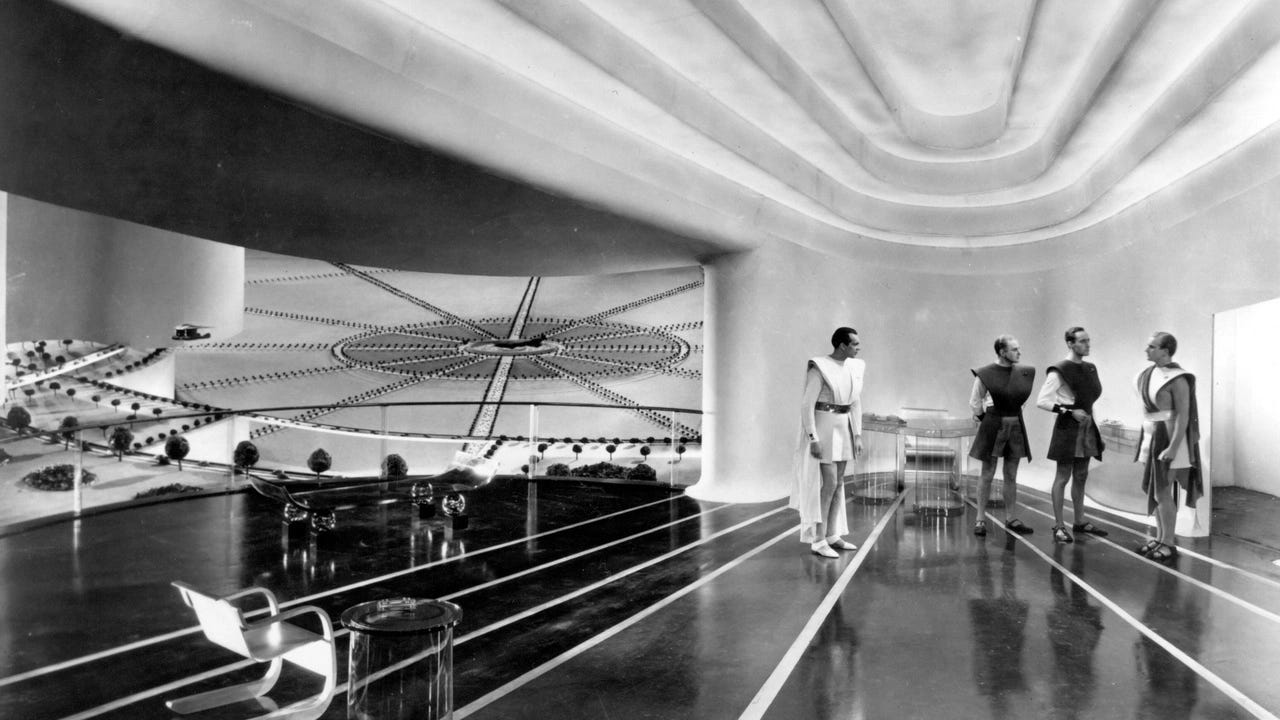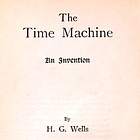2001: A Space Odyssey's Great Ancestor: Things to Come
The film adaptation of H.G. Wells' book "The Shape of Things to Come" (1933), released on February 20, 1936, under the title "Things to Come," is one of the masterpieces of its time.
The film adaptation of H.G. Wells' book "The Shape of Things to Come" (1933), released on February 20, 1936, under the title "Things to Come," is one of the masterpieces of its time. The production of the film was undertaken by the Hungarian-born British director Alexander Korda (Sándor László Kellner), who would later establish the British Lion Films, one of England's largest film distribution companies, alongside the British film and television company London Films. Speaking of producer Korda, it's also worth mentioning another significant contribution he made to British cinema: Sound. Yes, Korda worked in Hollywood during the transition from silent to sound film from 1926 to 1930, and then applied what he experienced there in England. It is important to note that we are talking about a film where the director is as prominent as the producer.
Therefore, it would be a good idea to also mention the American director of the film, William Cameron Menzies. "Production design" and "art direction" would be titles introduced to the cinema world by Menzies, and they would first be associated with him during his time. Menzies would both direct and design the production of another science fiction film titled "Invaders from Mars" in 1953. For the first time in 2005, the Art Directors Guild Hall of Fame, recognizing significant contributions to cinema, would include Menzies alongside several other famous filmmakers.
As for the plot of the film, spanning from 1940 to 2036, depicting a ninety-six-year future history, it will not adhere strictly to the ending date of 2055 in H.G. Wells' book. The story of the film, like the book, will be set in the fictional English city of "Everytown." In 1940, England, on the verge of becoming a society of prosperity and consumption, will suddenly come under attack, leading to decades of world war. The perception of civilization will almost collapse, bringing manufacturing and trade to a halt as the human race struggles to survive in primitive conditions. A pandemic in 1966 will further diminish the human population, leading to small groups living scattered lives.
The reasons for the war will begin to fade from memory. It is precisely during this period that a strange flying vehicle of unknown origin will visit those struggling to survive. The pilot of the vehicle will speak of an organization working from scratch to rebuild civilization and will instill hope in people. Indeed, over the following decades, humanity will regain its confidence and build new cities underground. By the year 2035, humanity will be on the brink of another step in its natural evolution as the first humans will be sent to our planet's moon, the Moon. However, there will be a large group of people who believe that excessive scientific progress will once again bring disaster to humanity. With remarkable special effects for its time, the film will leave its mark on cinema history as an epic.
The film, with its intriguing scenario of struggling for life during a period of excessive scientific progress, has served as a reference to our current concerns, despite being made 80 years ago. Just like its name suggests, it hints at "the future of things to come."
With a budget of 260,000 pounds, Things to Come will be one of the most expensive films made at the time. While The Examiner newspaper on July 9, 1937, selected "The Ghost Goes West" as the best film of 1936, "Things to Come" will be considered a significant success, securing the ninth place for that period. I am delighted to share the wonderful comment made by British science fiction historian and film critic Gary Westfahl about this film:
Things to Come should be considered the first true masterpiece of science fiction cinema. Those who criticize the pace and characters of the film have actually missed H.G. Wells' message. Its 'episodic' structure and the high ambition behind it have made 'Things to Come' the great precursor to '2001: A Space Odyssey.'










